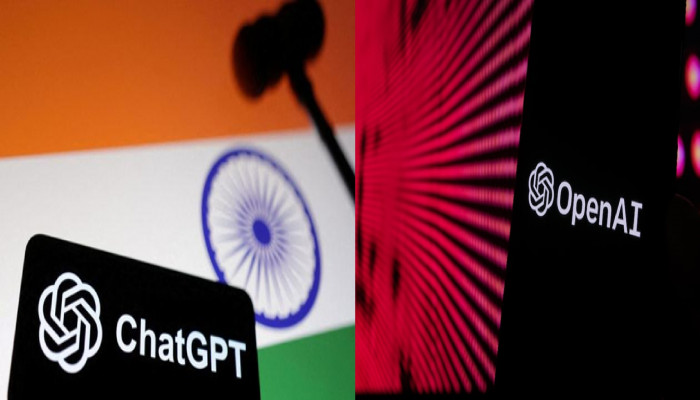Indian media giants team up in legal battle against OpenAI over copyright disputes
- In Reports
- 04:31 PM, Jan 27, 2025
- Myind Staff
Indian billionaires Gautam Adani and Mukesh Ambani, as well as media organisations The Indian Express and Hindustan Times, have filed a lawsuit against OpenAI for allegedly violating copyright, according to a report from Reuters on Monday.
The developer of ChatGPT is accused in the complaint, which was filed in a court in New Delhi, of inappropriately exploiting copyrighted content by stealing and duplicating content from news websites without authorisation. After generating $6.6 billion last year, OpenAI, which ignited the AI craze with the release of ChatGPT in November 2022, is aiming to take the lead in the generative AI race. Concerns over OpenAI's use of data from websites owned by DNPA members and other outlets, including Adani's NDTV and Ambani's Network18, are brought up in the case. The plaintiffs contend that OpenAI's activities constitute "willful scraping" and "content adaptation," endangering the priceless copyrights that Indian digital news companies possess.
This case is part of a larger legal dispute against OpenAI in India, which started last year when the local news agency ANI filed a similar lawsuit. Global and Indian book publishers have also joined the legal fight, reflecting a growing trend of copyright concerns surrounding generative AI models. The result of this lawsuit could have major effects on how generative AI platforms interact with the media industry. If the court rules in favour of the plaintiffs, AI companies like OpenAI may face stricter rules about how they collect and use copyrighted material. On the other hand, if OpenAI wins, it could change the definition of "fair use" in the digital age and alter copyright laws moving forward.
The company responded to ANI's complaint by claiming that it has "no office or permanent establishment in India" and that the servers hosting ChatGPT's training data are situated outside of the country. Additionally, the company stated that it had to keep all of its data safe throughout the ongoing hearings since it was defending a case in the United States. This implies that no data can be deleted until the court case is over. This news comes shortly after reports that Indian book publishers, along with international ones, have filed a copyright infringement lawsuit against OpenAI. The Federation of Indian Publishers, which includes members like Bloomsbury, Penguin Random House and Rupa Publications, filed the case in the Delhi High Court to stop ChatGPT from accessing their copyrighted content.
The situation in India is similar to legal actions taken by media organisations around the world. For instance, The New York Times and a group of U.S. newspapers, including the Chicago Tribune and The Denver Post, have also filed lawsuits against OpenAI, accusing the company of copyright infringement. These lawsuits claim that OpenAI's use of copyrighted content to train its AI systems doesn't qualify as "fair use," even though the company argues otherwise.
Some media companies, including outlets in India like The Times of India, have chosen not to take part in the legal challenge. However, others, such as the Associated Press, The Financial Times and Vox Media, have teamed up with OpenAI. Through these partnerships, they’ve given OpenAI controlled access to their archives in return for payment. These collaborations are designed to help media companies gain from AI progress while still having some control over how their content is used. Worldwide, musicians, news organisations and authors are suing tech companies for utilising their protected works to train AI models and demanding that their content be taken down.







Comments